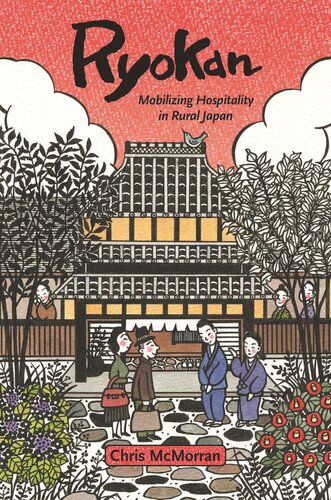

Most ebook files are in PDF format, so you can easily read them using various software such as Foxit Reader or directly on the Google Chrome browser.
Some ebook files are released by publishers in other formats such as .awz, .mobi, .epub, .fb2, etc. You may need to install specific software to read these formats on mobile/PC, such as Calibre.
Please read the tutorial at this link: https://ebookbell.com/faq
We offer FREE conversion to the popular formats you request; however, this may take some time. Therefore, right after payment, please email us, and we will try to provide the service as quickly as possible.
For some exceptional file formats or broken links (if any), please refrain from opening any disputes. Instead, email us first, and we will try to assist within a maximum of 6 hours.
EbookBell Team

0.0
0 reviewsAmid the decline of many of Japan’s rural communities, the hot springs village resort of Kurokawa Onsen is a rare, bright spot. Its two dozen traditional inns, or ryokan, draw nearly a million tourists a year eager to admire its landscape, experience its hospitality, and soak in its hot springs. As a result, these ryokan have enticed village youth to return home to take over successful family businesses and revive the community. Chris McMorran spent nearly two decades researching ryokan in Kurokawa, including a full year of welcoming guests, carrying luggage, scrubbing baths, cleaning rooms, washing dishes, and talking with co-workers and owners about their jobs, relationships, concerns, and aspirations. He presents the realities of ryokan work—celebrated, messy, ignored, exploitative, and liberating—and introduces the people who keep the inns running by making guests feel at home.
McMorran explores how Kurokawa’s ryokan mobilize hospitality to create a rural escape from the globalized dimensions of everyday life in urban Japan. Ryokan do this by fusing a romanticized notion of the countryside with an enduring notion of the hospitable woman embodied by nakai, the hired female staff who welcome guests, serve meals, and clean rooms. These women are the face of the ryokan. But hospitality often hides a harsh reality. McMorran found numerous nakai in their 50s, 60s, and 70s who escaped violent or unhappy marriages by finding employment in ryokan. Yet, despite years of experience, nakai remain socially and economically vulnerable.
Through this intimate and inventive ethnography of a year in a ryokan, McMorran highlights the importance of both the generational work of ryokan owners and the daily work of their employees, while emphasizing the gulf between them. With its focus on small, family-owned businesses and a mobile, vulnerable workforce, Ryokan makes an invaluable contribution to scholarship on the Japanese workplace. It also will interest students and scholars in geography, mobility studies, and women’s studies and anyone who has ever stayed at a ryokan and is curious about the work that takes place behind the scenes.